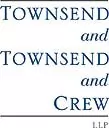In another significant set-back for patent plaintiffs, the Supreme Court in Microsoft v. AT&T Corp. held that merely shipping a master disk containing software code to overseas computer manufacturers for copying and installation on new computers is insufficient to create infringement liability for those copies installed on the foreign-manufactured machines. The Court’s ruling will have far-reaching impact on the amount of damages a plaintiff may obtain based on foreign activities.
Section 271(f) of the Patent Act provides an exception to the general rule that there is no liability for infringement of a U.S. patent in foreign countries; the exception exists where one supplies the components of a patented invention for combination abroad. In Microsoft, the Supreme Court examined the applicability of Section 271(f) to software master disks.
Microsoft ships versions of the Windows operating system on master disks to foreign-based computer manufacturers. Those manufacturers then make copies of Windows and install those copies onto their new computers. AT&T holds a patent on a computer apparatus for digitally encoding and compressing recorded speech. Microsoft admitted that the computers of the foreign-based manufacturers, loaded with Windows, would be infringing products if brought into the United States.
The district court found Microsoft liable for infringement by virtue of the inclusion of copies of Windows in foreign-manufactured computers. On appeal, a divided Federal Circuit affirmed. The Supreme Court then reversed, holding that until the Windows software was actually installed in a machine, it was not a "component" capable of being combined in a manner that would infringe AT&T's patent under 271(f). The Court reasoned that software code, in the absence of a physical structure -- such as a computer to implement it -- was a mere intangible abstraction, like a plan or mental blueprint, and could not qualify as a component under Section 271(f) for purposes of infringing the apparatus claim at issue in the case. Moreover, the master disk was not directly used to load the Windows program onto the foreign-manufactured computers; rather, copies were made from the master disk abroad and then those copies were loaded onto the computers. Therefore, according to the Supreme Court, any copies which might be considered components of the infringing products were not "supplied" from the United States within the meaning of Section 271(f). Accordingly, the Court vacated that portion of AT&T’s damages based on these foreign activities."
This article is for informational purposes only and is not intended to be, nor should it be considered as, legal advice or opinion.
© 2007 Townsend and Townsend and Crew LLP. All Rights Reserved.

